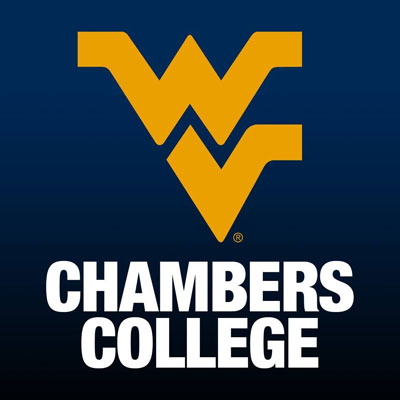Most college students would tell you they're scared to think about their next steps. Not West Virginia University business students.
In June 2025, the post-graduation placement rate for undergraduate students in the John Chambers College of Business and Economics reached 78.1% – an all-time high – following 10 consecutive years of growth.
“This is indicative of just how well our students are performing in the classroom, during their internships, and ultimately during the interview process,” said Sarah Glenn, director of the Center for Career Development in the Chambers College. “It’s also reflective of the strategic investment that we’ve made in student success.”
That investment has taken many forms.
One form is manpower. From 2015 to 2025, the staff of the CCD nearly doubled, with additional support provided by the Zweig Fellows and Hutson Fellows, student employees who use their burgeoning career experience to help fellow business Mountaineers land internships. Alumni and other community members also volunteer hundreds of hours per year to advise students on career development.
Another form is philanthropic. If a Chambers College student lands an internship that comes with a cost of living they can’t afford, the CCD can provide internship access funds to help them take that first and most important step in their careers. Additionally, industry partners coordinate on-site visits where Chambers students can immerse themselves in the industries they'll one day lead.
However, there’s a third form of investment that isn't as easy to quantify: academic support.
“We have amazing faculty who are integrating professional development into the academic experience,” Glenn said. “For Chambers College students, it doesn’t feel like an add-on activity. It’s central to what it means to be a business student today. With the faculty’s support in integrating our work into the classroom, we spend less time marketing ourselves to students and can focus on high-quality service delivery. The faculty are absolutely essential to increasing our placement rate.”
That academic integration ranges from mandatory resume workshops and CCD consultations to externship programs and networking events.
“We can now focus more on student needs and where they’re struggling,” said Assistant Director of Undergraduate Career Development Ashley Lesnick. “We sit down and spend time with them and figure out where they need to improve, whether that’s understanding what new skills will make them competitive or learning to communicate the expertise they already have.”
That holistic, individualized approach has paid off. Every student is different, and that means every job search is different. By focusing on what makes students unique, the CCD teaches them how to build themselves into professionals who are not only competent, but also confident.
The CCD, however, isn’t resting now that they’ve reached an all-time high. They want to go even further.
“We want to continue expanding the hands-on experiences that undergraduate students get,” Glenn said. “Our strategic focus over the next couple of years is going to be on scaling those. We also want to continue increasing the number of alumni and employers who are engaging with our students. That’s going to make a really meaningful change for them.”
Every CCD initiative is born from that drive to create meaningful change in students’ lives.
“We love helping them,” Lesnick said. “It’s intrinsic to every single person on our team. If the student wins, we’re winning, and we get our energy from them. I think the students feel that, and it makes them want to come back and keep going through their journey with us.”
Want to know how you can help Chambers College students succeed in the workforce? Contact Sarah Glenn to learn more.
-WVU-
am/7/28/25
MEDIA CONTACT:
Andrew Marvin
Senior Communications Specialist
John Chambers College of Business and Economics
andrew.marvin@mail.wvu.edu

